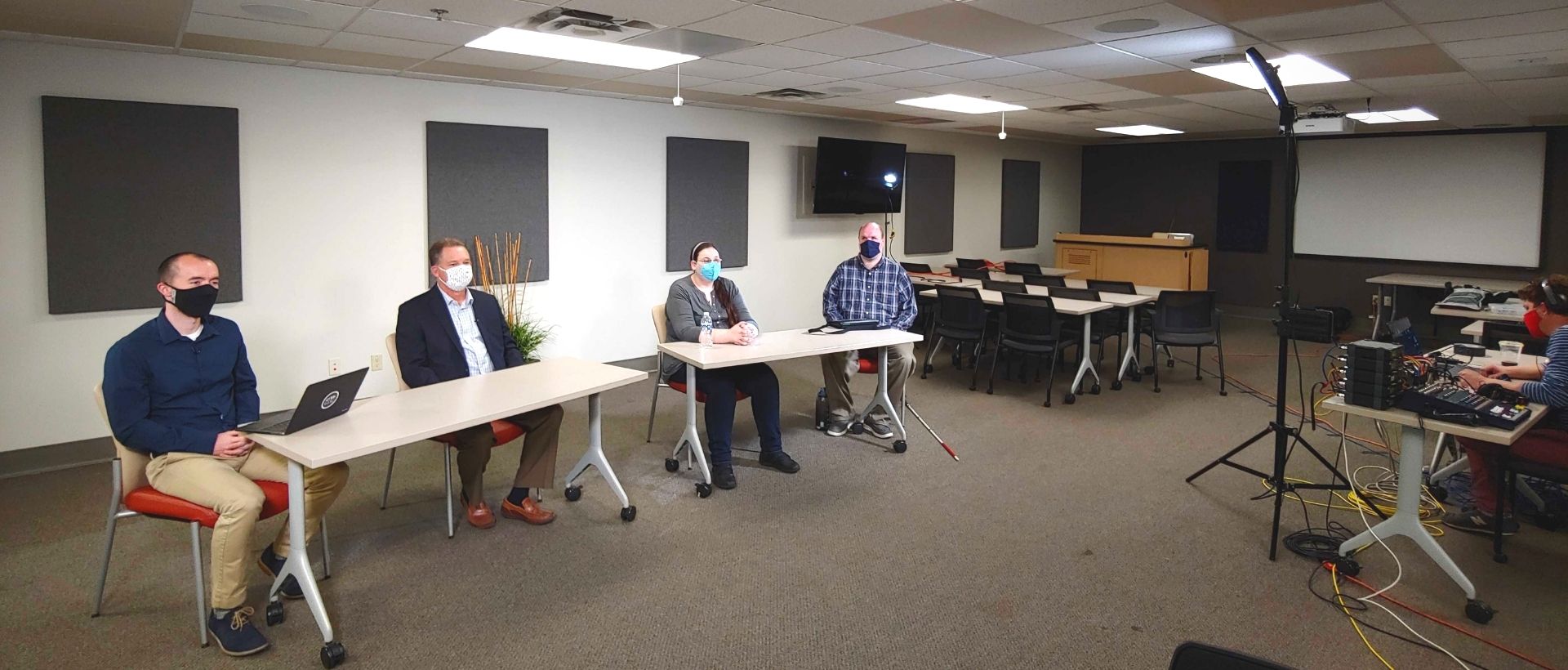At IBVI, we talk about our mission a lot: creating meaningful employment opportunities for those who are blind or visually impaired. But this mission goes beyond our organization. Whether you’re an individual or employer, you can help support the independence and empowerment of the blind and visually impaired community.
GET INVOLVED
Whether you’re visually impaired or sighted, there are many ways to get involved and support employment for those who are blind or visually impaired. After all, supporting organizations that contribute to the success and empowerment of those with disabilities is imperative to their survival. This type of involvement can be done through monetary donations and volunteering your time or efforts, if that’s an option. But the easiest way to get involved and show your support is simply by spreading awareness of their missions.
Here are only a few organizations to check out:
American Foundation for the Blind (AFB)
Blinded Veterans Association (BVA)
National Federation of the Blind (NFB)
HAVE AN OPEN MIND
Sometimes things we don’t understand or experience firsthand can make us uncomfortable. This feeling is normal and okay—only if you are willing to have an open mind and try to change your perspective. For example, among the blind and visually impaired communities, the unemployment rate sits higher than 60 percent. And part of that is because many employers don’t consider hiring people with disabilities or people who are blind.
“We’ve got an industry that focuses on employing those with visual impairments—but the greater good would be if we can get other organizations that normally aren’t hiring people who are blind or visually impaired up to speed. So understanding that it’s not difficult, it’s not expensive, and it’s the right thing to do. Companies are actually missing a really great and unbelievably untapped community out there.”
— IBVI President & CEO CJ Lange
At IBVI, when we hire someone who is blind or visually impaired, we work with them individually—which is a critical part of the onboarding process—because not everybody who is blind has the same visual acuity or needs. Just like anyone else, everybody is different. .
BE WILLING TO LEARN
Having an open mind also relates to another tip:education. Learning about the different types of visual impairments and what kind of tools and technology allow those with impairments to be successful is vital.
“In my experience, people think if you’re legally blind, you can’t see anything, which is totally wrong. There are varying degrees of blindness. Some people—like me—have great central acuity, but the outer field of vision is missing. Other people can make out shapes or tell the difference between light and dark. There’s just much education out there as to what being blind truly means.”
— IBVI Employee Alison Fortney
When it comes to accommodating those with visual impairments, it’s about making sure the right technology and tools are available—but, more importantly, making sure the available technologies and tools are right for each person. Typically these aren’t significant investments or changes, but they go a long way in helping those who are blind or visually impaired excel in their roles.
Some of these changes can include:
- Investing in screen reading software like JAWS.
- Ensuring your building is equipped with Braille signage.
- Learning about different cutting-edge technologies for visual impairments.
ADVOCATE WHERE YOU CAN
The best thing you can be is an advocate for those with disabilities. Being an advocate can vary from starting small conversations within your social circle to more significant conversations within your community or with your employer about hiring those with visual impairments.
“While a blind person is certainly capable of being a good or a bad employee just like a sighted person, we tend to have a harder time getting a job. So if we get that job, we’re probably more likely to hang on to it. It’s important to find ways to help get over these misconceptions—because whether or not somebody is legally blind or totally blind, many of the jobs can be done. There are endless possibilities.”
— IBVI Employee Jeff Young
At the end of the day, those who are blind and visually impaired community want the same opportunities as those who are sighted—and they’ll be an extraordinary asset to any company. If you’re interested in learning more or having a conversation with one of our team members, please reach out.
